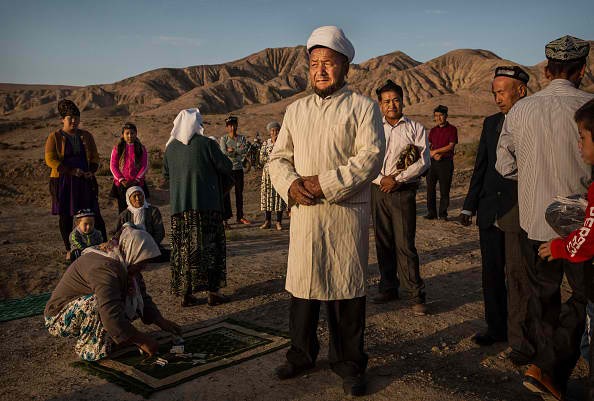China's Xinjiang Uighur Autonomous Region is moving towards greater stability amid challenges posed by terrorism, as both the Chinese government and regional leadership impose a "high-pressure crackdown" against terrorists looking to destabilize the region.
Xinjiang regional government chairman Shohrat Zakir said that the region has been fighting terrorists "resolutely and forcefully" since last year to keep it stable and secure. Residents have been vocal in their support against terrorism in Xinjiang, Xinhua reported.
Sharhat Ahan, who serves as the Communist Party of China (CPC) regional committee's deputy secretary under the Commission for Political and Legal Affairs, said that the "people's war" against terrorism in Xinjiang has empowered residents with the regional government's guarantee for security.
Chinese President Xi Jinping joined delegates from Xinjiang to discuss issues pertaining to the region's terrorism problem. He emphasized the need to build a "great wall of iron" against terrorism in Xinjiang, as the country braces itself for further threats to its stability.
Xi added that Xinjiang holds a strategic place in maintaining stability and security in China, as it serves as a "security barrier" that ensures the country's security against threats posed by Islamic terrorists from the geopolitically-volatile Middle East, specifically the Islamic State.
Although Zakir said that Xinjiang is generally becoming more stable due to persistent moves at cracking down on terrorists, the region remains vulnerable to various trends relating to international counterterrorism efforts, as religious extremism continues to work on expanding its transnational reach.
Nonetheless, the stability Xinjiang currently enjoys bodes well for the region's continuous growth, which at 7.6 percent last year has led to the rise of household incomes in both urban and rural areas by 8.3 percent and 9 percent, respectively.
Moreover, Xinjiang is a key region for China's Belt and Road Initiative, since the New Silk Road directly traverses through it. Trade with countries in Central Asia, which lies right next to Xinjiang, makes the region's fight against terrorism even more important.



























